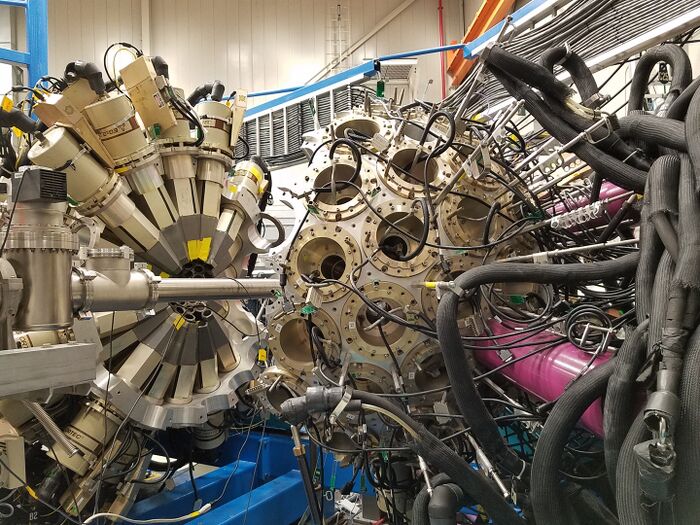Gammasphere

Gammasphere is the world's most powerful spectrometer for nuclear structure research. Built in the early 1990s, it centers around unique experiments involving nuclear physics. It is particularly tailored to collect gamma ray data following heavy-ion fusion. Beams of ions are directed at a target (usually a thin metal film). Nuclei from the beam fuse with those in the target, producing highly excited, much heavier nuclei. Gammasphere detects gamma rays — high-energy light particles — emitted from the excited nuclei as they spin and cool. This is done with 110 High Purity Germanium (HPGe) detectors. Each germanium detector is surrounded by bismuth germanium oxide (BGO), which allows for the suppression of background resulting from gamma-rays whose energies are not completely absorbed by the germanium detector. The data is collected using hardware on Gammasphere and on each detector.
Hardware
Each data goes through data collection as a part of a larger data acquisition system (DAQ system). Attached to every Ge detector is a slope box and SBX. They take data from a preamplifier inside each detector and prepare to send it off to the greater DAQ system.